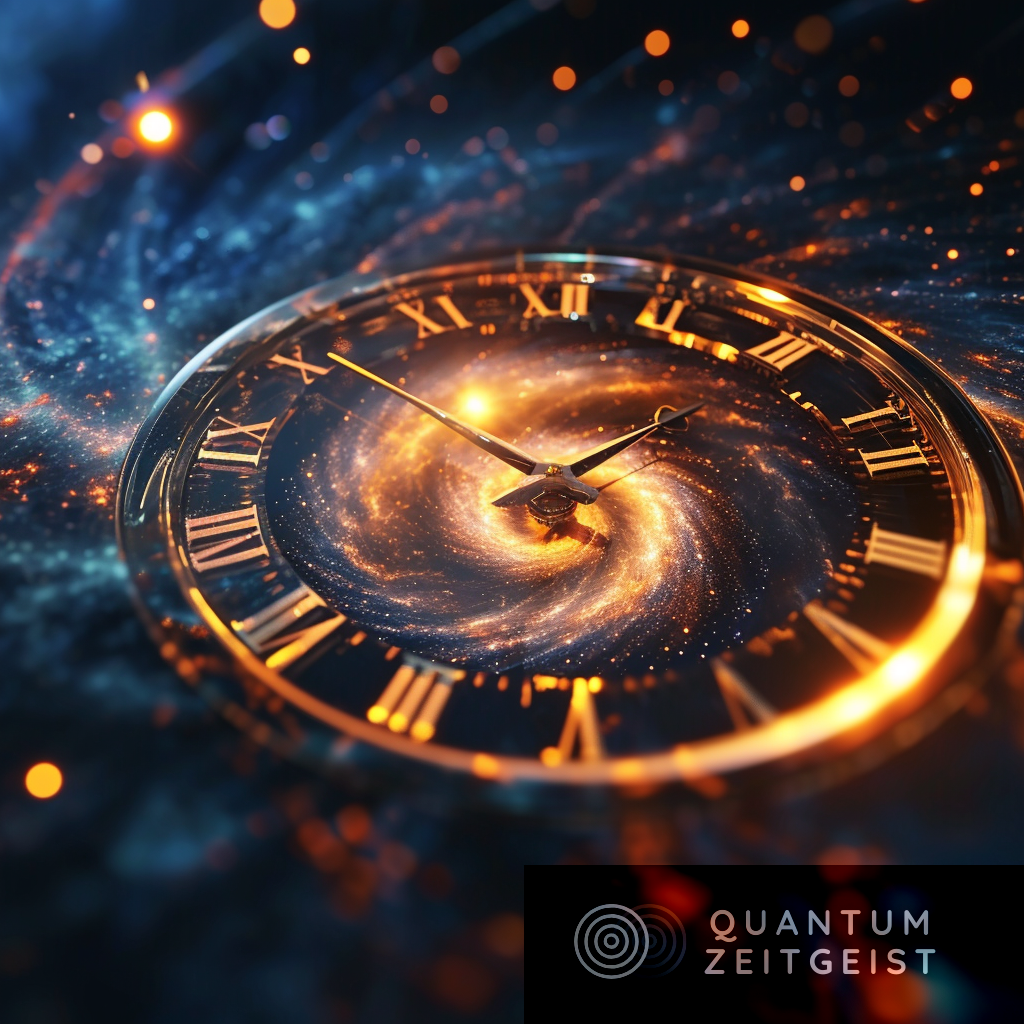The intersection of quantum computing and the theoretical possibilities of time travel remains an exhilarating yet contentious area of inquiry within modern physics. As the scientific community grapples with the implications of quantum mechanics, notions of traversing temporal dimensions increasingly capture both the imagination and intellect of researchers and enthusiasts alike. This discourse aims to elucidate the relationship between quantum computing and the tantalizing prospect of time travel by delineating relevant theories, technological advancements, and philosophical ramifications.
At the heart of this exploration lies quantum mechanics, a field that challenges conventional notions of reality. Quantum theories describe the behavior of particles at infinitesimal scales, permitting phenomena such as superposition and entanglement. In superposition, particles can exist in multiple states simultaneously until observed, leading to non-intuitive observations. Entanglement, on the other hand, denotes a condition in which particles become interlinked, such that the state of one instantly affects the state of another, irrespective of the distance separating them. These bewildering principles provide a fertile ground for speculating about time travel, raising profound questions about the nature of causality and the fabric of spacetime.
Classically, time travel has often been relegated to the realm of science fiction, with narratives featuring time machines capable of transporting individuals across the continuum of time. However, recent theoretical advancements have prompted scientists to reconsider the feasibility of temporal displacement through the lens of quantum mechanics. Notably, the concept of a “wormhole,” originally posited by Einstein and Rosen, elucidates a potential avenue through which time travel could manifest. Wormholes may function as shortcuts connecting disparate points in spacetime, albeit existing solely as mathematical constructs at this juncture.
Quantum computing, a revolutionary paradigm harnessing the principles of quantum mechanics to process information, has garnered attention for its potential to solve complex problems that are intractable for traditional computing paradigms. Quantum bits, or qubits, serve as the fundamental units of information, capable of embodying multiple values concurrently due to superposition. This multidimensionality allows quantum computers to perform intricate calculations at unprecedented speeds, potentially facilitating explorations into the very nature of time itself.
The connection between quantum computing and time travel is inherently speculative; however, various theoretical frameworks augment the possibility of intertwining these domains. One posited theory involves “quantum teleportation,” whereby the state of a quantum particle can be instantaneously transmitted from one location to another without traversing the intervening space, reminiscent of the instantaneous nature of time travel. If such phenomena could be scaled or manipulated, one could envision scenarios wherein temporal displacement becomes theoretically plausible.
Moreover, the concept of “quantum recursion” emerges as another framework ripe for investigation. This theoretical construct suggests that quantum computations might enable the retracing of states across time, thereby giving rise to a framework for time travel. In essence, quantum bits could be employed to revert a system to preceding states, potentially allowing for a temporal cyclical return. However, navigating the myriad implications of quantum recursion entails confronting numerous paradoxes about causation and the nature of free will.
Crucially, the philosophical implications of potential time travel through quantum computing invite deeper scrutiny. A primary consideration is the “Grandfather Paradox,” which poses an intriguing conundrum: if one were to travel back in time and inadvertently prevent a preceding event, such as the birth of a grandparent, how could the time traveler exist in the first place? Resolving the paradox necessitates a robust framework capable of accommodating branching timelines or alternate realities. The implications of such a framework would fundamentally alter our grasp of identity, agency, and temporal experience.
Theoretical physicist David Deutsch has further contributed to this discourse through his articulation of the “Many-Worlds Interpretation.” According to this perspective, every quantum event spawns a multitude of parallel universes, each representing different outcomes. Envisioning time travel within this context suggests that embarking on a journey into the past may yield not a singular timeline but a branch into an alternate reality unimpeded by subsequent consequences. This interpretation invigorates the narrative surrounding time travel, proposing a more intricate tapestry of existence that transcends linear causality.
While advancements in quantum computing continue to unfold, empirical evidence supporting the feasibility of time travel remains elusive. Research into quantum mechanics frequently leads to insights about the fundamental nature of reality, yet translating these theoretical nuances into practical applications requires overcoming substantial scientific and technological barriers. Challenges inherent in achieving stable qubit states and mitigating issues such as decoherence highlight the immensity of the task at hand.
Nevertheless, the prospect of quantum computing facilitating time travel resonates with a sense of hope and excitement. As researchers endeavor to unravel the complexities of quantum mechanics, the potential for a deeper understanding of time itself burgeons. By harnessing the unique capabilities of quantum computing, we inch closer to answering not only the question of whether time travel is feasible but also the underlying philosophical inquiries regarding our existence within the continuum of time and space.
In the final analysis, while the nexus between quantum computing and time travel is far from a settled matter, the ongoing engagement with these concepts not only enriches our scientific discourse but also invites a profound contemplation of humanity’s place in the universe. The conversation surrounding the potential of quantum mechanics to unlock the mysteries of time captivates our collective imagination, illuminating the vast horizons of inquiry that lie ahead.












